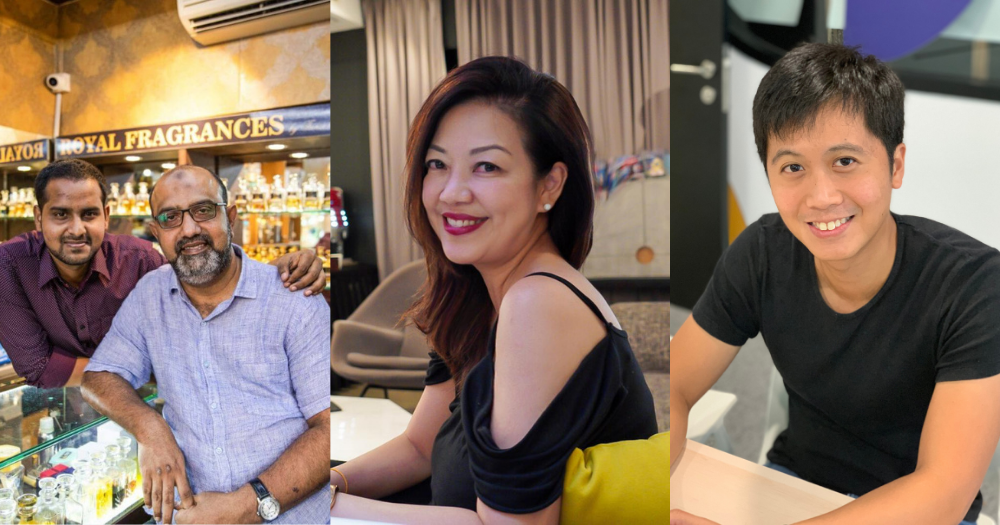A year ago, few could have fathomed the "new normal" we are currently living through — a somewhat dystopian reality.
As the Covid-19 pandemic stretches into its ninth month, its impact has been felt widely. However, one sector hit particularly hard is tourism.
Impact of Covid-19 on business
XY Hotel Bugis — a boutique hotel located in Kampong Glam — was heavily dependent on foreign tourists.
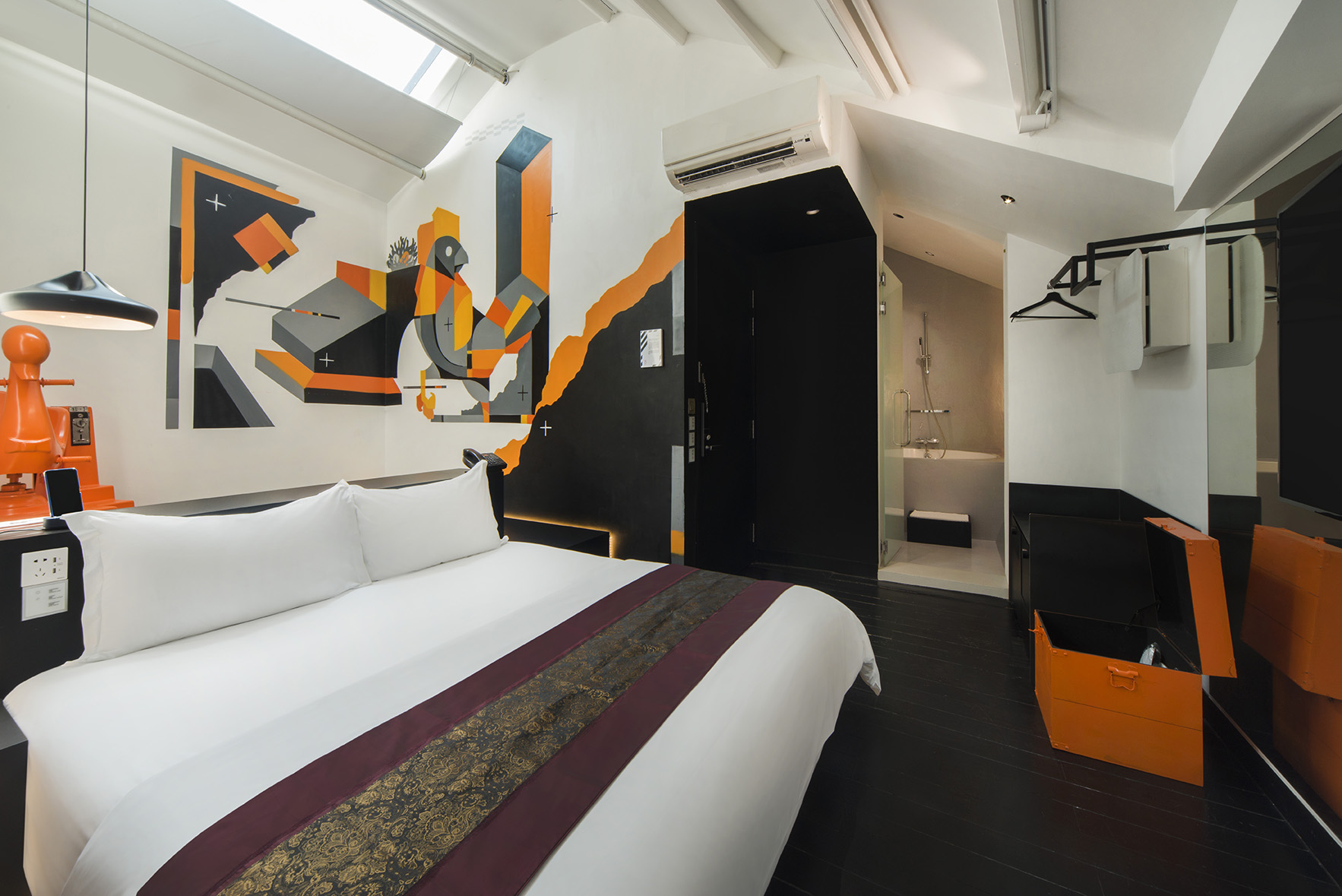 XY Hotel Bugis. Photo courtesy of Kua Hwee Cheng.
XY Hotel Bugis. Photo courtesy of Kua Hwee Cheng.
The hotel — founded in 2017 by 51-year-old Kua Hwee Cheng, a former Singapore Airlines flight stewardess — began receiving many cancellations from overseas guests in late-March.
By April, the hotel had to halt business due to the Circuit Breaker.
And while Kua had anticipated that business would be impacted, she shares that she was not prepared for the situation to worsen, and for the crisis to drag on for so long.
For Vouch, a local startup working with hotels to build contactless artificial intelligence (A.I.) powered digital concierges, the impact of Covid-19 was felt even earlier — in January, when Singapore closed its borders to all foreign travellers from mainland China.
This move battered businesses in the tourism sector, since Chinese tourists account for one in five visitors to Singapore.
Founder Joseph Ling, 33, explains the massive impact the border control measures had on business:
“We saw all the hotels in our sales pipeline quickly drop out — no one wanted to make any capital investment in our software with so much uncertainty about the travel industry’s short term future.”
50-year-old Shaik Abdulla Alla Pichai, who founded Royal Fragrances, a fragrance company located in Kampong Glam in 2007, also outlines how Covid-19 affected his family business.
Prior to Covid-19, roughly 40 to 50 per cent of their customers were tourists, particularly those from the Middle East, says Shaik.
This is because the company specialises in fragrances made from Agarwood, which is a type of wood found only in India and Southeast Asia.
Tourists from the Middle East prefer to get Agarwood here, because it is cheaper and of higher quality.
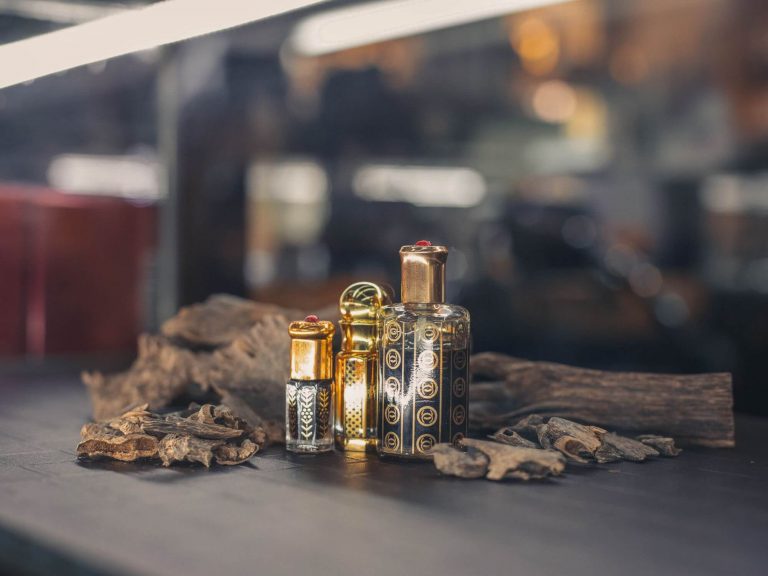 Agarwood fragrances. Photo courtesy of Shaik Abdulla Alla Pichai.
Agarwood fragrances. Photo courtesy of Shaik Abdulla Alla Pichai.
And while business was good for them in January, they began to feel the squeeze in February, when the DORSCON level was raised to Orange. Business dropped by 20 to 30 per cent.
In March, when the neighbouring Sultan Mosque closed, Royal Fragrances’ business fell by 70 to 80 per cent.
Staying afloat
All three business owners had to figure out how to adjust to the difficult reality of the pandemic.
The Circuit Breaker threw a huge wrench into the works. Like most tourist-facing businesses, they had to cease operations.
XY Hotel Bugis suffered huge losses starting from March, even up until now, as they were unable to generate revenue for several months.
Despite being three months into the start of Phase Two, the hotel is still trying to recoup losses, as occupancy at the hotel is still very low on weekdays. While weekends are better, they are still suffering a loss overall.
Kua shares that while finances were tight, they chose to inject their personal funds into the business in order to avoid laying off any of the staff:
“We are aware that this is a difficult and stressful time for all of them and wanted to reassure them that their jobs are intact.”
One positive factor was the government support measures that were put in place to help companies like hers overcome the difficult period.
“Without these support initiatives, I believe we will run into the red and be forced to shut down eventually.
Our business strategy may not work during this pandemic as we did not have any plans for this emergency and based our business plan on a steady flow of tourists as well as local staycations.
I think there is no magic formula to stay afloat if not for all the support measures.”
As hotels tightened their belts as they faced unclear horizons, the Vouch team had to plan for a scenario where they would expect zero revenue from hotels for the rest of 2020.
The team also didn’t plan to retrench any of their staff, says Ling:
“I believe that we have a great team at Vouch, and I felt that with this team, we could find a way through this cloud of uncertainty.
As such, we did not consider layoffs, and were more focused on how to position ourselves for growth, and generating revenue from other sources.”
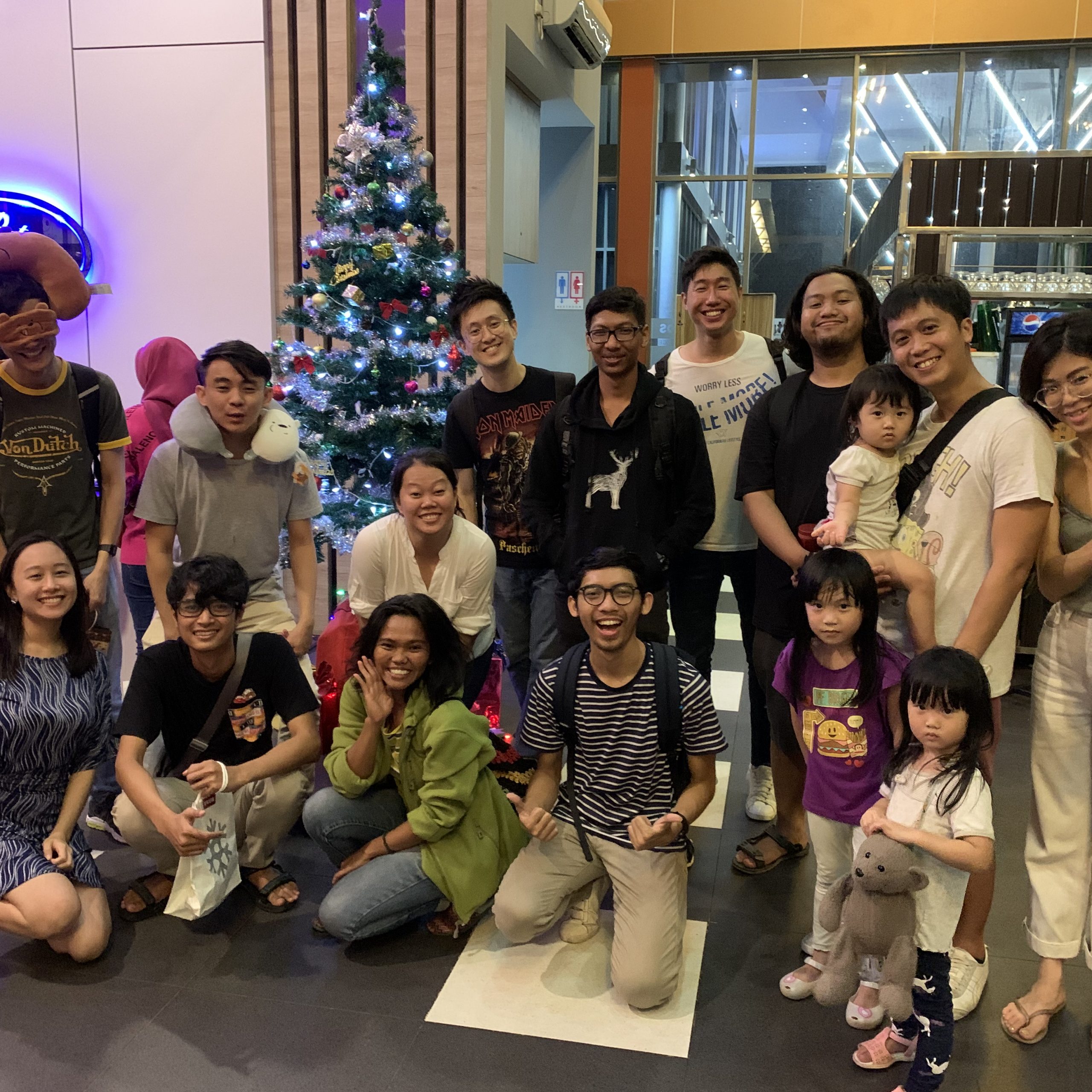 Ling (second from right) and part of the Vouch team. Photo courtesy of Joseph Ling.
Ling (second from right) and part of the Vouch team. Photo courtesy of Joseph Ling.
Vouch utilised government support such as the Job Support Scheme (JSS) to make longer-term manpower plans. Without this support, it would have been challenging for Vouch to cope with labour costs.
Luckily, the JSS helped keep Vouch afloat by providing additional financial assistance that allowed the company to retain and pay their local employees. It even helped the company avoid planned paycuts.
With the JSS extended until Mar. 2021 for most businesses, Vouch continues to benefit from the subsidies, which cover 10 per cent of the wages of Singaporean or permanent resident employees hired by Vouch.
In addition, the Jobs Growth Incentive, which was announced in the Ministerial Statement delivered by Deputy Prime Minister Heng Swee Keat on Aug. 17, gave Vouch the confidence to continue hiring and growing.
This was critical for helping the company to cope with the newfound demand for its products as well as meeting its goal of expanding regionally.
As part of the government’s efforts to create good and long-term jobs for locals, the JGI will provide one year of salary support for each new local hire by employers that managed to increase their local workforce from September 2020 to February 2021.
There are also other measures to help businesses with other costs and cashflow announced in earlier Budgets, including property tax rebates, rental relief, and financing schemes.
For Royal Fragrances, Shaik admits the Circuit Breaker was actually somewhat of a “blessing in disguise”, as they didn’t need to pay four months of rent, because their landlord gave them rental waivers.
Even when Shaik informed the landlord that it might be tough for them to pay the full rent once the waivers stopped, he says that she was very understanding:
“She was telling me, ‘Shaik, don't worry about the payment. We know that you are a good tenant, so don't worry about that.
We just want you to continue with the business. Let's talk about their payment later.”
Because of the rental waivers and his landlord’s kind understanding, Shaik was hopeful:
“I was very much confident, you know, that we can overcome these challenging times. So that was good.”
Shaik adds that the Self-Employed Person Income Relief Scheme (SIRS) and the JSS had supported his business to stay afloat amidst the pandemic.
Thanks to the JSS, he did not have to lay off either of his two staff members — one of whom is his son — and he didn’t face any difficulties with paying them.
Without the financial relief, he says, it would have been “very challenging” to survive, as the two main expenses of any retail shop are the cost of rental and employee wages.
While the JSS helped cover a good portion of Shaik’s business expenses, there was still the stress of how he would deal with personal expenses.
Thus, SIRS helped him, as a business owner, to keep his family afloat during the difficult financial time.
“When they announced [SIRS], it was a very big blessing for me, in the sense that it took care of my personal and family expenses.
It’s like S$1,000 a month, which is good enough for us to survive as a small family.”
And the scheme was implemented at just the right time, says Shaik:
“It was a great support during a challenging time. It came in at the right moment.”
Re-orienting amidst Covid-19
More than just surviving, the three business owners have also figured out how to change their business models to thrive as much as possible amidst the difficult financial climate.
For Shaik, he adapted to the Circuit Breaker by switching to fulfilling online orders from their local customers via WhatsApp, which customers also appreciated.
However, after Circuit Breaker ended, businesses thankfully began picking up again. The physical shop also started to see a steady stream of returning customers.
“Everybody wants to come and smell. Because this is a fragrance-related business, so people want to come and smell it before they buy it.”
And of course, there have been important safe distancing measures put into place:
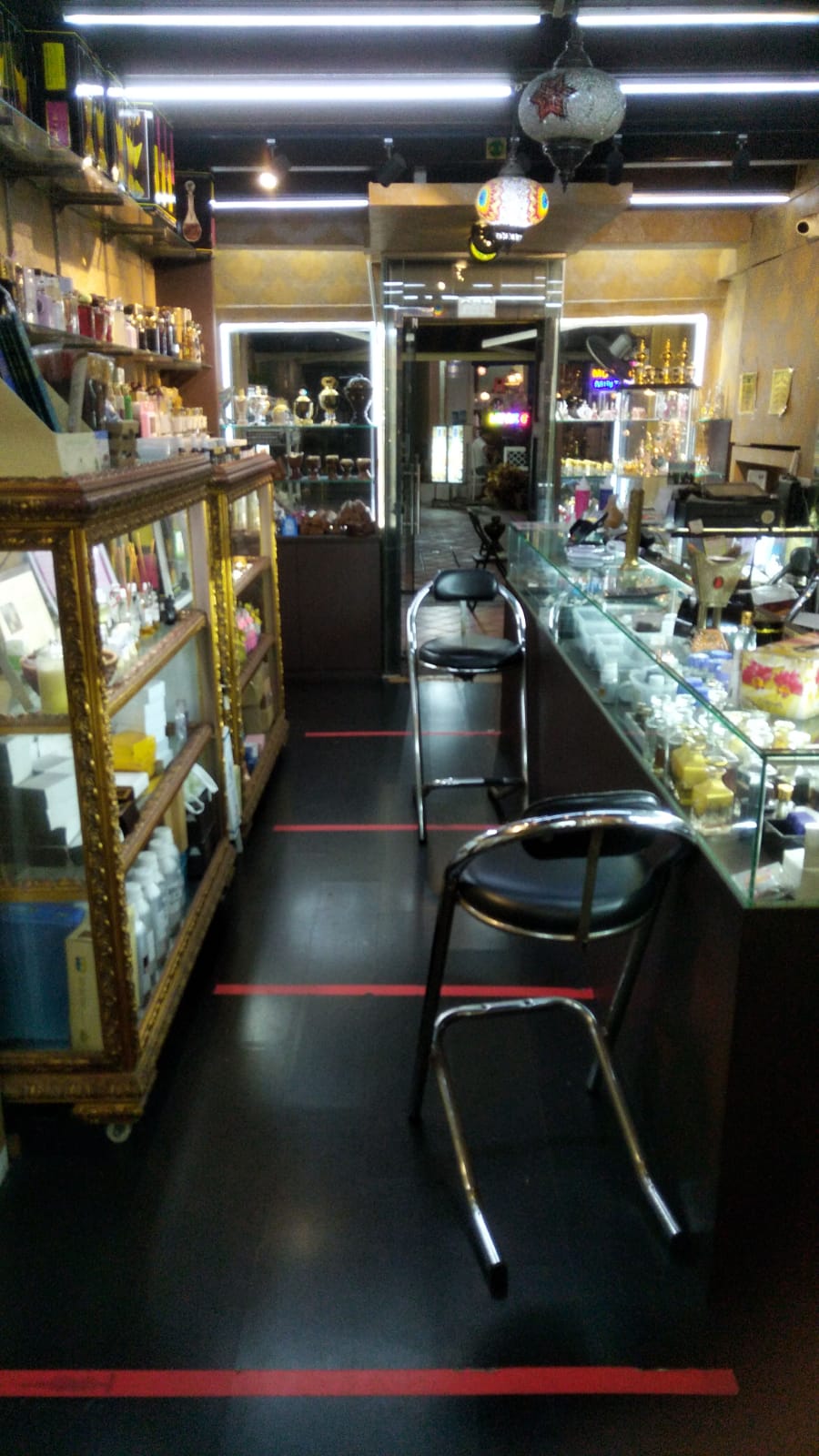 Safe distancing lines. Photo courtesy of Shaik Abdulla Alla Pichai.
Safe distancing lines. Photo courtesy of Shaik Abdulla Alla Pichai.
They also had to modify their business model to cater more to the local market. They put away products favoured by tourists — such as souvenirs — and focusing instead on what locals want, such as incense and Arabic perfumes.
In addition, they developed products with their own branding on them, and released their first product in August: premium incense sticks.
 Photo courtesy of Shaik Abdulla Alla Pichai.
Photo courtesy of Shaik Abdulla Alla Pichai.
And they recently launched a product that is particularly relevant to these times: a hand sanitiser, with Arabic perfumes inside.
Business has luckily picked up for Royal Fragrance, Shaik says, as more Singaporeans are shopping locally because the usual haunts in Malaysia are no longer accessible.
In addition, he found that a good number of customers discovered Royal Fragrance from other customers’ Google Reviews, which boasts a whopping 4.9 stars out of 5.
On the other hand, the team at Vouch was understandably worried when Covid-19 first hit, as their entire revenue stream depended on the hotel industry.
However, they realised that their product — contactless A.I.-powered digital concierges — suddenly had increased relevance to the industry.
“Thanks to our product’s contactless nature, what used to be something nice to have would be considered essential to hotels in the future,” said Ling.
When Phase Two was announced, and hotels had just a couple of days to re-open their restaurants, many scrambled to set up a new contactless menu and ordering system.
This was where Vouch came in. They were able to quickly build and launch the ordering systems for their clients, and to support their clients’ operations when the restaurants reopened.
Thus, Ling explains, the team developed greater faith in Vouch’s longer-term prospects, and began planning for a near-term future where all their revenue will come from beyond the travel industry.
And for Kua and her team at XY Hotel Bugis, they still have yet to receive any international tourists.
They turned toward hosting staycation packages for locals which started in August, after they were granted Staycation approval and SG Clean Certification.
While Phase Two has brought in more business compared with Phase One, Kua shares, the Covid-19 safety measures have resulted in less revenue and increased costs, with more work required.
However, she recognises that proper safety measures are essential, and adds that her team is serious about ensuring their guests’ safety.
XY Hotel Bugis has implemented new ways of services such as an e-concierge before guest check-ins and during their stay, using WhatsApp communication to reduce face-to-face contact, implementing safe distancing measures, and controlling human traffic flow.
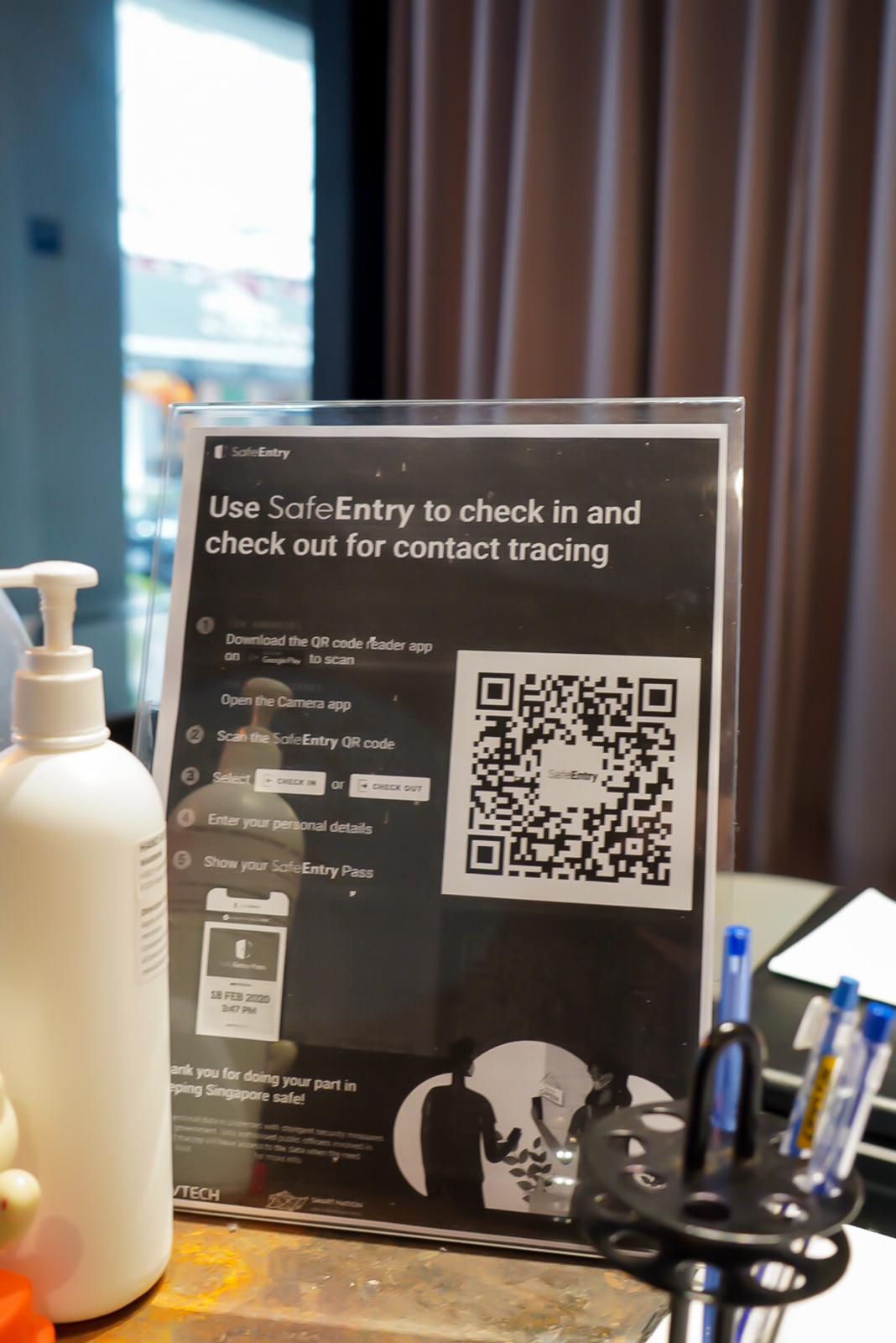 Photo via Kua Hwee Cheng.
Photo via Kua Hwee Cheng.
Looking towards the future
All three business owners share that they are generally optimistic about what is to come, although there may be some challenges.
“Vouch has renewed purpose and relevance in the new normal, and I’m excited to see where this takes us,” says Ling.
“I think that overall, Covid has accelerated the pace of change and digitalisation, and although I feel that much of this change is now over-stated because of the need for extreme safety measures, we will eventually return to an equilibrium that may not be vastly different than before, but will definitely be more digitally powered and safer."
Kua expresses her commitment to continually improving and adapting to the conditions, in the operations of both XY Hotel Bugis and Bistro XY, the restaurant within the hotel:
“I feel the coming months will be very challenging for local Singaporeans.
The new normal is starting to be a daily part of our lives. We just need to find ways on increasing the revenue as a business and work doubly hard to maintain a good quality of service, be it providing a great staycation experience or to improve our Bistro XY’s dining experience.”
Shaik expresses gratitude that business at Royal Fragrances is continuing to improve quite a bit, but anticipates that it will likely remain roughly the same until at least December.
Major changes will only occur once the tourist market is able to re-open again, he says.
As he plans to continue to produce more of Royal Fragrances’ own brand of products and work toward expanding the business to ship overseas, Shaik hopes that one day, that situation will be able to go back to some semblance of “normal”:
“Without this kind of hope, we cannot survive.”
This article is produced by Mothership in collaboration with the Ministry of Finance.
Top photos courtesy of Shaik Abdulla Alla Pichai, Kua Hwee Cheng, and Joseph Ling.
If you like what you read, follow us on Facebook, Instagram, Twitter and Telegram to get the latest updates.
